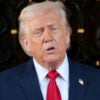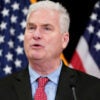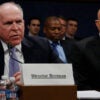Who doesn’t love a good vacation? A vacation, by definition, should be relaxing. If one has to fill out a lengthy form, be interviewed in person, and then wait for weeks to see whether or not they “passed” in order to go on vacation, that kind of defeats the purpose. Regrettably, this is exactly what happens to most individuals and families who want to visit the United States.
Of course, the current, cumbersome system does not deter all international travelers from visiting the U.S. In February, the U.S. Department of Commerce released a 2012 fact sheet on the National Export Initiative. The fact sheet found that travel and tourism generated a record $168 billion of revenue last year—a 10 percent increase from 2011. It also found that over 66 million international tourists came to the U.S. in 2012.
According to these numbers, despite a struggling economy, the travel and tourism industry continues to grow. These numbers, however, don’t tell the whole story. In 2010, the U.S. share of international travel was 11.6 percent, down from about 17 percent in 2000. In other words, while the U.S. travel and tourism industry is growing, it is not growing proportionally to the rest of the world.
The U.S. must work to regain its share of international travel. Expanding the Visa Waiver Program (VWP) is vital to this endeavor. Indeed, approximately 40 percent of travelers in 2011 came into the U.S. under the VWP. Yet, despite the potential for increased travel, only 37 countries are currently enrolled in the VWP. Making matters worse, only two of those countries have been admitted since 2008, even though many countries have long been waiting to join.
Through the VWP, citizens of participating countries apply to travel in the U.S. for up to 90 days without having to obtain a visa. Through this system, potential travelers are pre-screened for potential security concerns, thereby allowing State Department officials to better focus their efforts on other classes of travelers and individuals that may pose a threat to the U.S. With the process more streamlined than the traditional visa process, travel is also made easier for those seeking to come to the U.S., increasing the chances that citizens of member nations will choose to visit.
The VWP not only provides easier travel, but also enhances security. Countries accepted in the VWP must meet higher counter-terrorism, law enforcement, and other security standards. In addition, only about 1 percent of the VWP participants overstay their welcome in the U.S, which is the lowest of any visa category.
As a result, the current U.S. visa system can be very costly and time consuming without providing enough security, particularly due to the fact that the State Department is currently required to interview 100 percent of all visa applicants. This requirement may look good on paper, but in reality it makes little sense, stretching resources thin and making it harder for them to identify true threats.
International travel to the U.S. stimulates the economy and provides the nation with much-needed income. Yet, without widespread implementation of the VWP and removing the 100 percent visa interview requirement, traveling to the U.S. is difficult and stressful. Who wants a vacation like that?
Sarah Friesen is currently a member of the Young Leaders Program at The Heritage Foundation. For more information on interning at Heritage, please click here.






























